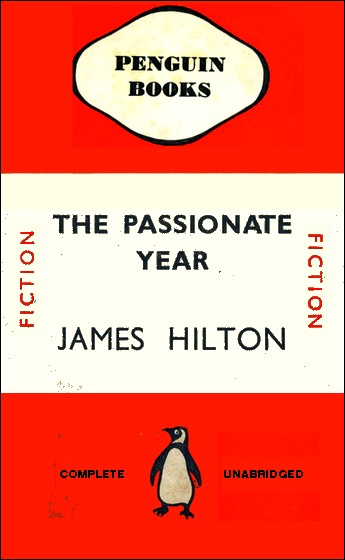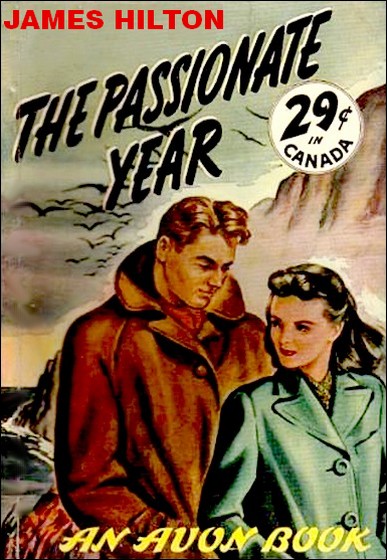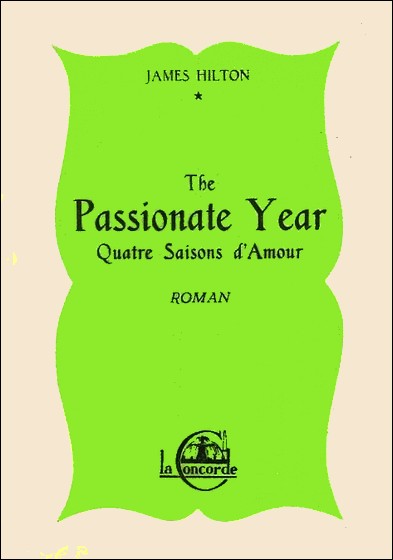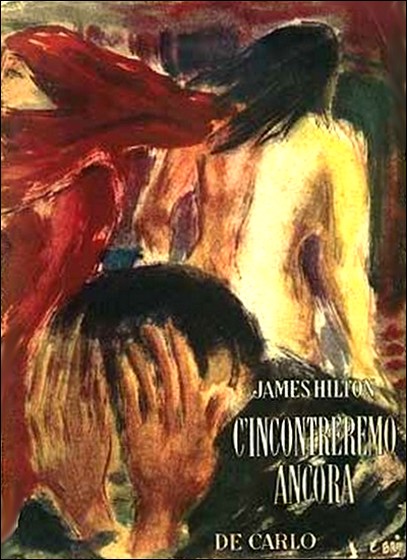The Passionate Year (35 page)

“I’m afraid I don’t, even yet.”
“Well”—her voice became harder—“it’s this, if you want plain
speaking. Watch her in case she kills herself. She’s thinking of it.”
He went ashen pale again and said quietly, after a long pause. “How do you
know that?”
“Her letter.”
“She mentioned it?”
“Yes.”
“And that’s what you’ve come to warn me about?”
“Yes. And to persuade you, if I could—”
“Why did you decide that a personal visit was necessary?”
“I shouldn’t have cared to tell you all this by letter. And besides, a
letter wouldn’t have been nearly as quick, would it? You see I only received
her letter this morning. After all, the matter’s urgent enough. One can
easily be too late.”
He said, with eyes fixed steadily upon her: “Clare, you
are
too
late. She drowned herself last night.”
He expected she would cry or break down or do something dramatic that he
could at any rate endure. But instead of that, she stared vacantly into the
fast-deepening gloom of the coppice, stared infinitely, terribly, without
movement or sound. Horror tore nakedly through her eyes like pain, though not
a muscle of her face stirred from that fearful, statuesque immobility.
Moments passed. Far over the intervening spaces came the faint chiming of the
half-hour on the town-hall clock, and fainter still, but ominous-sounding,
the swirl of the waves on the distant beach as the wind rose and
freshened.
He could not bear that silence and that stillness of hers. It seemed as
though it would be eternal. And suddenly he saw that she was really
suffering, excruciatingly; and he could not bear it, because he loved her.
And then all his plans for torturing her, all his desires for vengeance, all
his schemes to make her suffer as he had suffered, all the hate of her that
he had manufactured in his heart—all was suddenly gone, like worthless
dust scoured by the gale. He perceived that they were one in suffering as in
guilt-fate’s pathetic flotsam, aching to cling together even in the last
despairing drift.
He cried, agonisingly: “Clare! Clare! Oh, for God’s sake, don’t stare at
me like that, Clare! Oh, my darling, my dear darling, I’m
sorry—sorry—I’m dead with sorrow! Clare—Clare—be kind
to me. Clare—kinder than I have been to you or to Helen!…”
She said, quietly: “I must get back in time for my
train.”
“No, no—not yet. Don’t go. Don’t leave me.”
“I must.”
“No—no—”
“You know I must. Don’t you?”
He became calmer. It was as if she had willed him to become calmer, as if
some of the calmness of her was passing over to him. “Clare,” he said,
eagerly, “do you think I’m
bad
-am
I—
rotten-souled
—because of what’s happened? Am I
damned
, do you think?”
She answered softly: “No. You’re not. And you mustn’t think you are. Don’t
I love you? Would I love you if you were rotten? Would you love me if I
was?”
He replied, gritting his teeth: “I would love you if you were filth
itself.”
“Ah, would you?” she, answered, with wistful pathos in her voice. “But I’m
not like that. I love you for what I know you are, for what I know you could
be!”
“Could be? Could have been! But Clare, Clare—who’s to blame?”
“So many things happen dreadfully in this world and nobody knows who’s to
blame.”
“But not this, Clare.
We’re
to blame.
“We can be to blame without being—all that you said.”
“Can we? Can we? There’s another thing. If Helen had—had
lived—she would have had a baby in a few months’ time…”
He paused, waiting for her reply, but none came. She went very pale. At
last she said, with strange unrestfulness: “What can I say? What
is
there to say?…Oh, don’t let us go mad through thinking of it! We
have
been wrong, but have we been as wrong as that? Hasn’t there been
fate in it? Fate can do the awfullest things…My dear, dear man, we should
go mad if we took all that load of guilt on ourselves! It is too heavy for
repentance…Oh, you’re not
bad
, not inwardly. And neither am I. We’ve
been instruments—puppets—”
“It’s good to think so. But is it true?”
“Before God, I think it is…Think of it all right from the
beginning…Right from the night you met us both at Millstead…It’s easy to
blame fate for what we’ve done, but isn’t it just as easy to blame ourselves
for the workings of fate?”
She added, uneasily: “I
must
go back. My train. Don’t forget the
time.”
“Can’t you wait for the next?”
“
Dear
, you
know
I mustn’t. How could I stay? Fate’s finished
with us now. We’ve free-will…Didn’t I tell you we weren’t
bad
? All
that’s why I can’t stay.”
They began to walk back to the railway-station. A mist-like rain was
beginning to fall, and everything was swathed in grey dampness. They talked
together like two age-long friends, partners in distress and suffering; he
told her, carefully and undramatically, the story of the night before.
She said to him, from the carriage-window just before the 3:18 steamed
out: “I shan’t see you again for ever such a long while. I wish—I wish
I could stay with you and help you. But I can’t…You know why I can’t, don’t
you?”
“Yes, I know why. We must be brave Alone: We must learn, if we can, to
call ourselves good again.”
“Yes…Yes…We must start life anew. No more mistakes. And you must grow
back again to what you used to be…The next few months will be
terrible—maddening—for both of us. But
I
can bear them. Do
you think
you
can—without me? If I thought you
couldn’t”—her voice took on a sudden wild passion—“if I thought
you would break down under the strain, if I thought the fight would crush and
kill you, I would stay with you from this moment and never, never leave you
alone! I would-I would—if I thought there was no other way!”
He said, calmly and earnestly: “I can fight it, Clare. I shall not break
down. Trust me. And then—some day—”
She interrupted him hurriedly. “I am going abroad very soon. I don’t know
for how long, but for a long while, certainly. And while I am away I shall
not write to you, and you must not write to me, either. Then, when I come
back…”
He looked up into her eyes and smiled. The guard was blowing his
whistle.
“Be brave these next few months,” she said again.
“I will,” he answered. He added: “I shall go home.”
“What? Home. Home to the millionaire soap-boiler?” (A touch of the old
half-mocking Clare.)
“Yes. It’s my home. They’ve always been very good to me.”
“Of course they have. I’m glad you’ve realised it.” Then the train began
to move. “Good-bye!” she said, holding out her hand.
“Good-bye!” he cried, taking it and clasping it quickly as he walked along
the platform with the train. “See you again,” he added, almost in a
whisper.
She gave him such a smile, with tears streaming down her cheeks, as he
would never, never forget.
When he went out again into the station-yard the fine rain vas falling
mercilessly. He felt miserable, sick with A new as well as an old misery, but
stirred by a hope that would never let him go.
Back then to the Beach Hotel, vowing and determining for the future,
facing in anticipation the ordeals of the dark days ahead, summoning up
courage and fortitude, bracing himself for terror and conflict and
desire…And with it all hoping, hoping…hoping everlastingly.
GALLERY OF COVER IMAGES

Cover of Penguin Edition, 1939.

Cover of Avon Edition, 1944.

Cover of French Edition, Concorde, Paris, 1946.

Cover of Italian Edition, Rome, 1946.